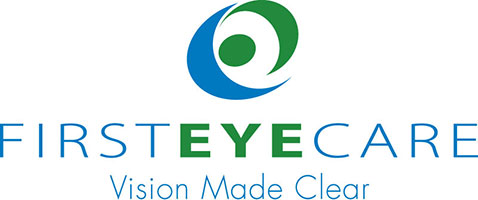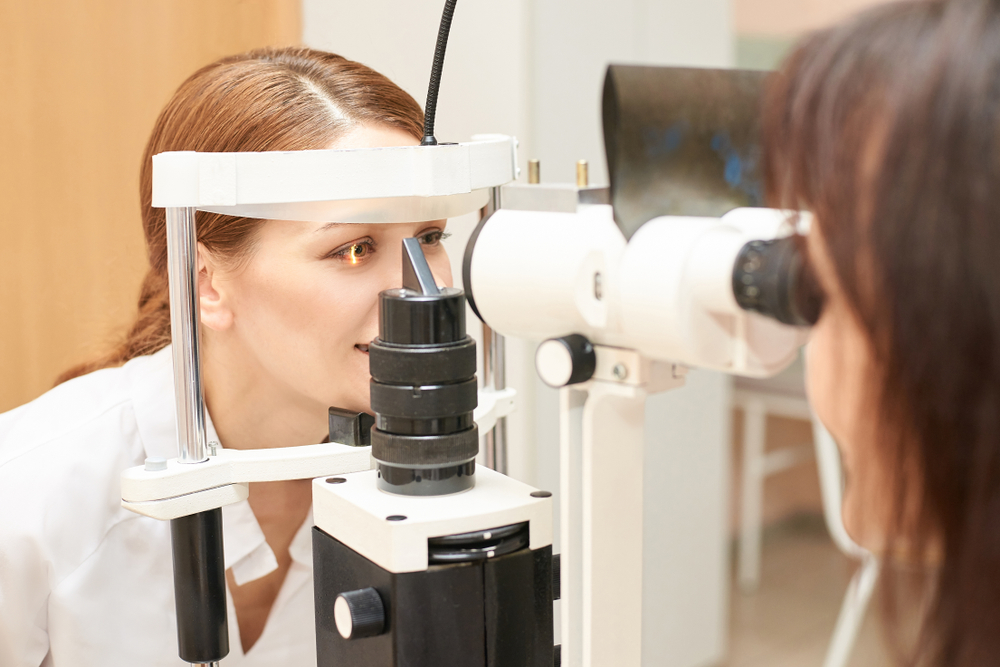Heredity Can Impact Your Vision
One of your most important senses is your vision. Without it, you wouldn’t be able to drive to and from work, read and write, prepare meals, and much more. Your overall quality of life would be drastically reduced if your vision were to wane or you went blind. Countless conditions and diseases can lead to vision loss. With the help of a trusted eye care provider, you can help prevent blindness or stop the progression of some diseases. However, it is important that you help your eye doctor. Just as you would tell your family doctor about your family’s medical history, it’s equally as important to let your eye doctor know about your family history with eye disease.
Many different eye diseases can be passed down through genetics. Many of them also go unnoticed until it is too late. By providing your eye doctor with your family history, they can better examine your eyes for any conditions that threaten your vision.
Many vision problems are the result of hereditary eye diseases. First Eye Care DFW is here to help you understand how your family history affects your vision and how you can protect your vision.
Common Vision Problems
There are many ways that your genetics can lead to vision problems. Not all of them are inherently dangerous eye diseases, however. Many are eye conditions that reduce your vision and prevent you from having 20/20 vision. They are simple vision problems that affect infants, children, adolescences, and adults.
Some conditions that are often genetically determined include:
- Strabismus: Commonly referred to as cross-eyed, strabismus occurs when a person’s eyes are not aligned properly under normal conditions, often pointing in different directions.
- Amblyopia: Amblyopia occurs during early childhood when one eye’s vision is weaker than the other, frequently referred to as a lazy eye.
- Myopia: People who have myopia struggle to see objects further away from their eyes. This condition is commonly referred to as nearsightedness.
- Hyperopia: Hyperopia, also known as farsightedness, is the opposite of myopia. While you can see objects far away from you, you struggle to see things up close.
- Astigmatism: Astigmatism is an eye condition known as a refractive error. Eye doctors note it by an irregular curvature of the cornea.
These vision problems can occur in people with otherwise healthy eyes. The only issue is that these conditions cause them to struggle to see clearly. If you have a family history with any of these conditions, schedule a comprehensive eye exam with your eye doctor.
Serious Eye Diseases
While several eye conditions lead to varying degrees of vision problems, there are more serious eye diseases that threaten the overall health of your eye, often leading to vision loss or blindness. These diseases put your entire eye at risk. Many of these conditions are leading causes of blindness in infants, children, and adults.
Over 60% of cases of blindness in infants are caused by eye diseases that are all inherited, including congenital cataracts, congenital glaucoma, retinal degeneration, eye malformations, and more.
You can inherit other serious, vision-threatening diseases, including:
- Age-Related Macular Degeneration (AMD): AMD occurs when the macula, the part of the retina responsible for clear, sharp vision, becomes damaged. This disease develops the older you get. There are two specific genes found to increase the risk of developing AMD that are passed down through your family.
- Glaucoma: This group of eye diseases occurs when the optic nerve that connects your eye to the brain suffers damage. If you have a family history of glaucoma, then you are four to nine times more likely to develop this disease.
- Retinitis Pigmentosa: This is a degenerative disease of the retina, often characterized by night blindness and gradual vision loss. However, researchers are beginning to make progress in identifying the genes that lead to this disease.
AMD and glaucoma are the two leading causes of blindness in adults around the world. Your family history can save you from vision loss and blindness. Most eye diseases do not show any symptoms until later in life. Your vision may gradually decline without any noticeable changes, which is why it’s so important to know your family history to prevent future vision loss.
Knowing Your Family History
As we have mentioned throughout this blog, there are several different eye diseases and conditions that can be passed down your family. While not all threaten the health of your eye, many of them do and can lead to blindness. However, while you can’t control what diseases are hereditary, you can control how you treat them.
Do some research into your family history, so that you are able to share this information with your eye doctor on your next visit with them. By educating them on your family history, your eye doctor will be able to craft an eye care routine or treatment best suited for you. This will also give them an idea of what conditions or diseases to keep an eye out for.
Many of these diseases and conditions do not have early warning signs. They don’t make themselves known until it’s too late. The earlier you detect them, the better your chances of saving your vision will be.
Your eye doctor may recommend a comprehensive dilated eye exam, which is a painless procedure that allows them to examine your eye for any signs of eye problems. They will be able to rule out or diagnose any conditions they find. After your eye doctor has completed your eye exam, they will be able to create a schedule of follow-up appointments to keep an eye on a condition’s progression.
Your family history plays a large role in the health of your eyes. Many are unaware of how many eye diseases are genetic, passing from one generation to another. It’s important for you to take a proactive approach to your eye care. Learn your family history and share that with your eye doctor. To schedule an eye exam, contact First Eye Care DFW.



